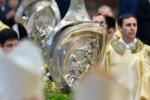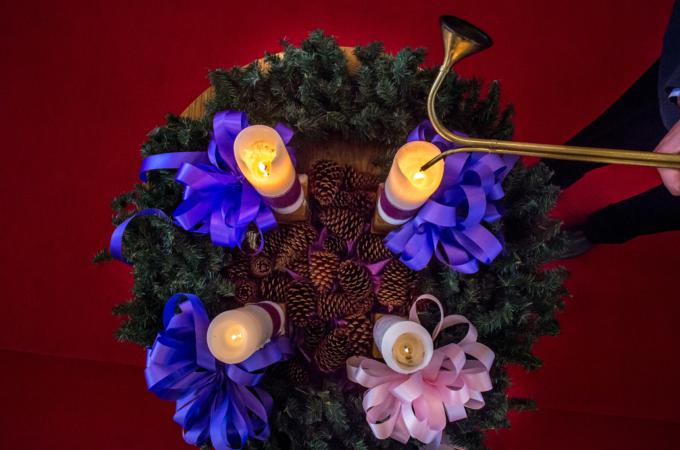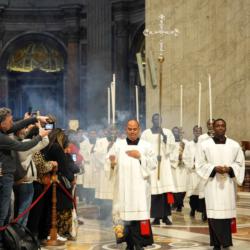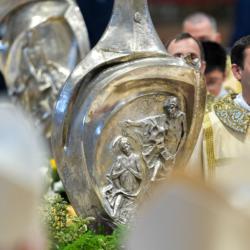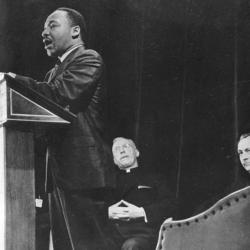Hoping rather than worrying during Advent
We are now in the blessed season of Advent, when we wait eagerly to receive our Lord and Savior Jesus Christ into our hearts on Christmas, as he was born in Bethlehem over 2,000 years ago, and will come again at the end of time to mercifully judge the living and the dead. Hope is the characteristic virtue of the season, as it is the confident expectation, based on Jesus our Redeemer, to be happy with him forever in heaven, as he promised his faithful followers.
Our hope, then, is in God and not in ourselves or our human resources. It is only if we place our hope in lesser things like money, power, success or health that we have grounds for discouragement and anxiety. Specifically, a number of modern saints have repeatedly urged us to not worry, because they had their priorities straight.
St. Padre Pio, who died in 1968 and was canonized in 2002 by St. John Paul II, famously said, "Pray, hope and don't worry. Worry is useless. God is merciful and will hear your prayer."
St. Marianne Cope, who died in Molokai in Hawaii in 1918 after decades of ministering to lepers, cleaning their wounds and giving them hope, and was canonized by Pope Benedict XVI in 2012, had this to say: "I think life is all too short to spend any part of it in worry and anxiety."
And Blessed Solanus Casey, who died in Detroit in 1957 and was beatified last month (the first American-born man to be beatified for "heroic virtue"), wrote: "Worry is a weakness from which very few of us are entirely free. We must be on our guard against this most insidious enemy of our peace of soul. Instead, let us foster confidence in God, and thank Him ahead of time for whatever he chooses to send us."
Finally, that man for all seasons, St. Thomas More, patron saint of statesmen and informal patron saint of English-speaking lawyers, and martyr, wrote on the eve of his execution to his daughter Margaret: "My own good daughter, do not let your mind be troubled over anything that shall happen to me in this world. Nothing can come but what God wills. And I am very sure that whatever that be, however bad it may seem, shall indeed be the best." That is the kind of hopeful trust in God that every true Christian should have. All's well that ends well. Where there's life, there's hope. As Indian guru Meher Baba, who died in 1969, memorably said, "Don't worry. Be happy." But for Christians, the reason for that is Jesus Christ, our Redeemer.
A consequence of this is that we should be ready to smile. As Pope Francis said in his first weekly audience in a year-long series on hope, "One of the first things that happens to people who distance themselves from God is that they are people who do not smile. Perhaps they can break into a loud laugh, one after another, a joke, a chuckle...but their smile is missing! Only hope brings a smile, it is the hopeful smile in the expectation of finding God."
Mary Beard, British classical scholar, noted in her recent book "Laughter in Ancient Rome"(2014), apropos of the apparent lack of a proper word for "smile" in classical Latin, "We see no clear evidence that smiling as such was a significant player in Roman social interactions in general. 'Keep smiling' and the like were sentiments unheard of in Rome ... . Of course, arguments from silence are always perilous ... . But it is hard to resist the suggestion of Jacques LeGoff that (in the Latin West at least) smiling as we understand it was an invention of the Middle Ages." The Christian Middle Ages, I would add.
- Dwight G. Duncan is professor at UMass School of Law Dartmouth. He holds degrees in both civil and canon law.

